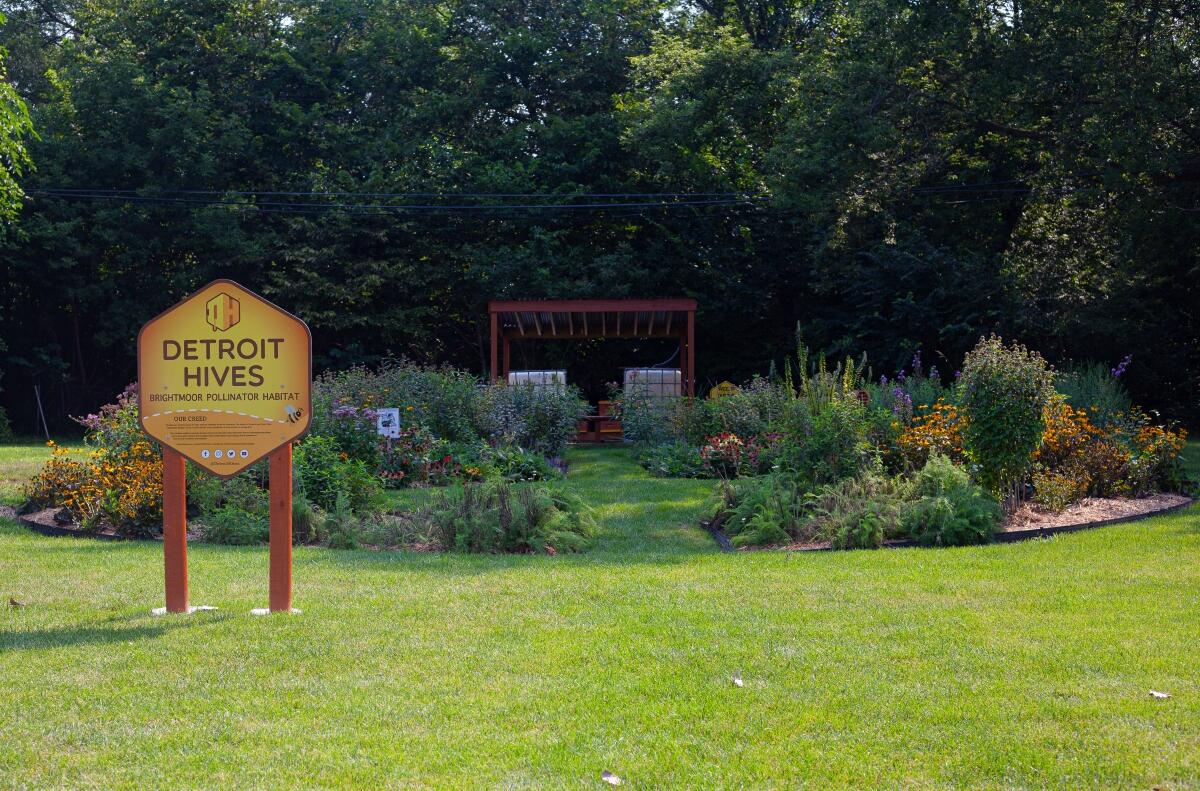 Detroit has long been home to a vibrant urban farming community, and many Detroiters and neighborhood associations have created green spaces to make their neighborhoods more attractive, healthier, and more sustainable. Still, many of the vacant lots in Detroit remain overgrown and neglected. According to Detroit Future City, Detroit has 24 square miles of vacant land that has yet to be returned to productive use. Abandoned buildings, unsightly and often polluted vacant lots, and blight are linked to higher rates of chronic mental and physical health conditions, especially among people of color.
Detroit has long been home to a vibrant urban farming community, and many Detroiters and neighborhood associations have created green spaces to make their neighborhoods more attractive, healthier, and more sustainable. Still, many of the vacant lots in Detroit remain overgrown and neglected. According to Detroit Future City, Detroit has 24 square miles of vacant land that has yet to be returned to productive use. Abandoned buildings, unsightly and often polluted vacant lots, and blight are linked to higher rates of chronic mental and physical health conditions, especially among people of color.
Enter Detroit Hives, whose mission is to improve neighborhoods for residents and pollinators by transforming vacant lots into educational bee farms. Founded in 2016, Detroit Hives manages the health of 4.5 million honeybees in Detroit and Southeast Michigan at more than 25 locations. Honeybees play a crucial role in pollinating plants, including plants that produce food, and their numbers have been declining in recent years due to various factors, including habitat loss and pesticide use. Detroit Hives creates and manages a safe habitat for bees in the City to help ensure these crucial pollinators continue supporting local agriculture.
Americana awarded a grant to Detroit Hives in February 2022 to support designing and installing a pollinator garden at MSU's Detroit Partnership for Food Learning and Innovation (DPFLI). The new four seasons garden (the "GO GREEN Botanical Garden") will include more than 300 seasonal perennials. It will be used for neighborhood programs and events centered around blight remediation, tree and flower planting, bee yoga, and youth programming ("Bee The Change"). Before designing and constructing the garden, the applicant will host two community listening sessions in the neighborhood to gather information about the type of garden and programming that would best represent them. Once the garden has been established, Detroit Hives will work with neighbors to propagate the perennials so that neighbors can plant bee-friendly plants in their backyards. Detroit Hives anticipates that the garden will serve more than 4,000 low-income people in the neighborhood.
Americana is proud to support Detroit Hives' mission of bringing diversity and cognizance to bee awareness and rebuilding inner-city communities. More information about Detroit Hives is available on its website.
